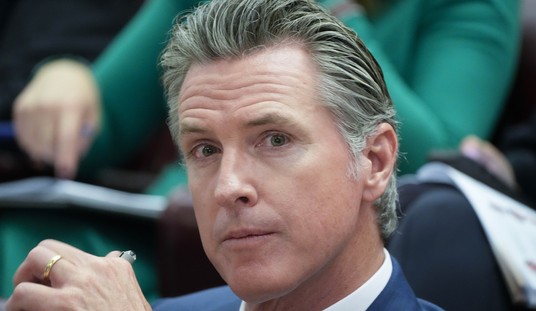Kinda puts a new spin on the check’s in the mail, eh? The House began the process yesterday with its supermajority passage of a clean bill that bumps direct COVID-19 relief payments to $2000 per individual. Chuck Schumer tried to “begin the process” this morning by moving the House bill on an emergency basis, which requires unanimous consent. Mitch McConnell objected, blocking the move, but promised a “process” for dealing with Donald Trump’s demand:
Senator Mitch McConnell of Kentucky, the majority leader, on Tuesday sidestepped a push to increase stimulus checks to $2,000, saying instead that the Senate would “begin a process” to consider bigger payments, along with two of President Trump’s other demands: protecting election security and removing some legal protections for technology companies.
Mr. McConnell did not elaborate further on how exactly the Senate would move to consider Mr. Trump’s demands, which the president made on Sunday after finally agreeing to sign a $900 billion stimulus package and government spending bill into law. Mr. Trump had held the package hostage for days, insisting that lawmakers triple the direct payments to $2,000 from $600, remove a legal shield for companies like YouTube and Facebook and investigate ”very substantial voter fraud.”
Blocking Schumer’s move doesn’t mean he’s blocked the bill itself, but it delays the processing considerably by forcing HR9051 into the regular order — meaning readings, committee assignment, and so forth. Furthermore, McConnell declared that all of the president’s priorities should be addressed if the Senate is to take up the direct payments. That suggests that McConnell will link these three into a single bill, which creates all sorts of new obstacles for any of them to pass:
In a floor speech, McConnell acknowledged President Donald Trump’s demand to increase payments, limit legal protections on tech companies and investigate election fraud as a condition for signing the $900 billion stimulus bill on Sunday. But he made only a vague commitment to litigating those issues in the coming days.
“Those are the three important subjects the president has linked together. This week the Senate will begin a process to bring those three priorities into focus,” McConnell said as he tried to set up a veto override vote on the annual defense bill for Wednesday.
Democrats are clearly wary that McConnell will try and roll the three disparate topics together, which Sen. Chris Murphy (D-Conn.) said “is an invitation for this entire effort to fall apart.”
McConnell’s trying his best here, but it’s going to be a losing battle. For one thing, it appears that Bernie Sanders has plenty of company among Senate Democrats in demanding a floor vote on HR 9051 before getting to the veto override on the NDAA. “Begin the process” won’t cut it, especially with hints that McConnell’s process looks like the addition of poison pills on unrelated matters like Big Tech regulation and election security. Plus, any new bill would then require the House to meet again to pass the relief expansion again, and the clock is running out on legislative action already.
For another, opposition to the expanded relief is evaporating around McConnell. Allahpundit already wrote about the position switch from Kelly Loeffler and David Perdue, who will face voters in seven days and whose previous opposition to higher relief checks made them vulnerable in the runoffs. However, Politico also reports that Sen. Deb Fischer (R-NE) has flipped as well, and she’s already not on board with McConnell’s apparent “process”:
Many House Republicans supported a House bill to boost checks on Monday and conservative Sen. Deb Fischer (R-Neb.) told reporters on Tuesday she’s open to the idea.
“People are hurting and I think we need to get more aid,” she said, while panning the possibility the checks might get rolled together with unrelated bills. “I’m upset it’s not targeted. I’m upset that the process is always throwing in things together, I’m upset we continue to not have bills in time to really study them.”
Fischer’s complaint is clearly aimed at McConnell, as HR9051 is both available and easily read. It’s only five pages long, and only focuses on the immediate issue. The easiest “process” would be to move this bill on the Senate floor for a roll call vote as soon as rules now allow without encumbering it with non-COVID issues, especially issues as contentious as Section 230 and election issues.
So now not only does McConnell have to deal with a potential filibuster on the veto override, but has to worry that he’ll soon be unable to sustain a filibuster on HR9051 too. The longer this thing lingers, the more McConnell’s position will erode. Had he been smarter, McConnell would have passed a second round of the $1200 payments and pre-empted this play, especially with Donald Trump’s occasional calls for bigger relief payments over the last couple of months. Now he’s playing fiscal hawk after passing the bloated omnibus bill without complaint, a ridiculous position everywhere outside the Beltway in the middle of a crisis.
Perhaps McConnell had better start “processing” that reality. He can’t win them all, and this futile attempt to recover his sunk costs in the previous negotiations carries a real potential of losing his grip on the Senate if Georgia voters take it out on Perdue and Loeffler. They’re both smart enough to figure it out — why isn’t McConnell?








Join the conversation as a VIP Member